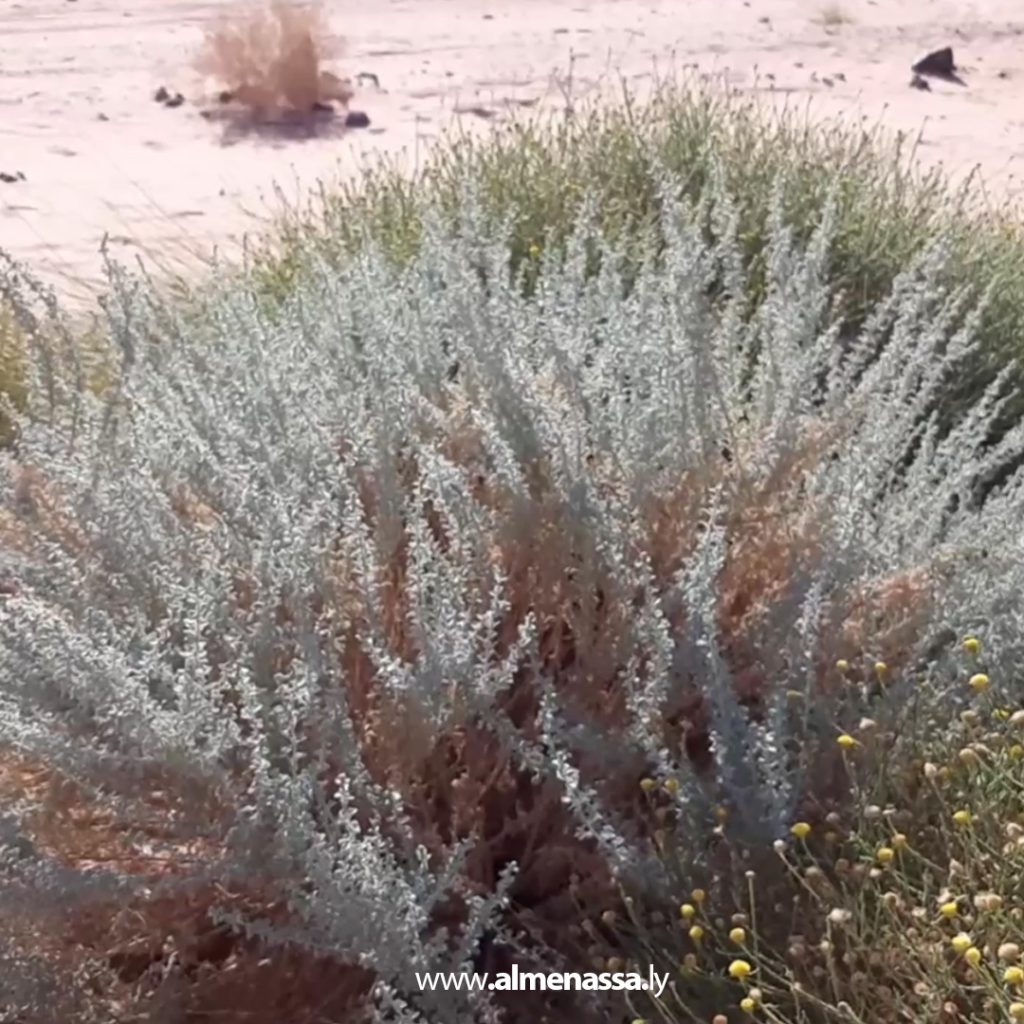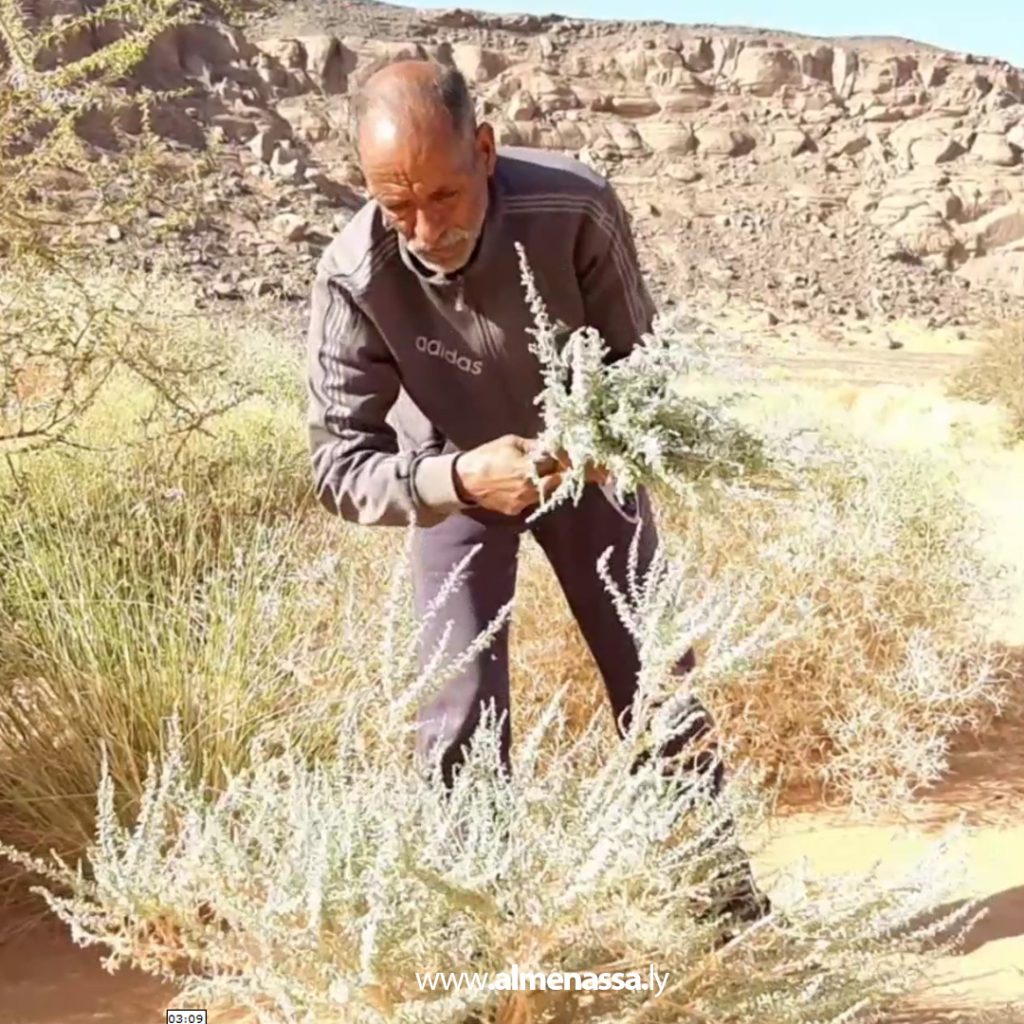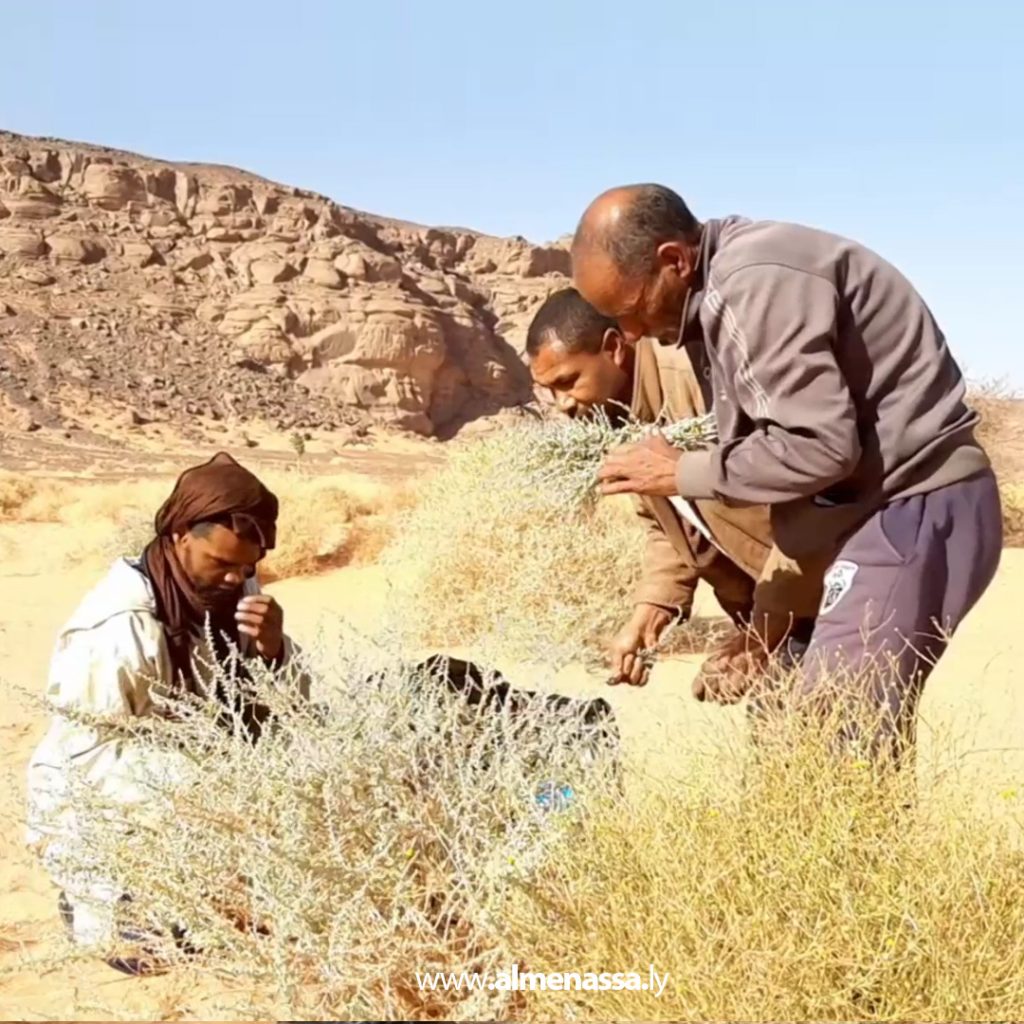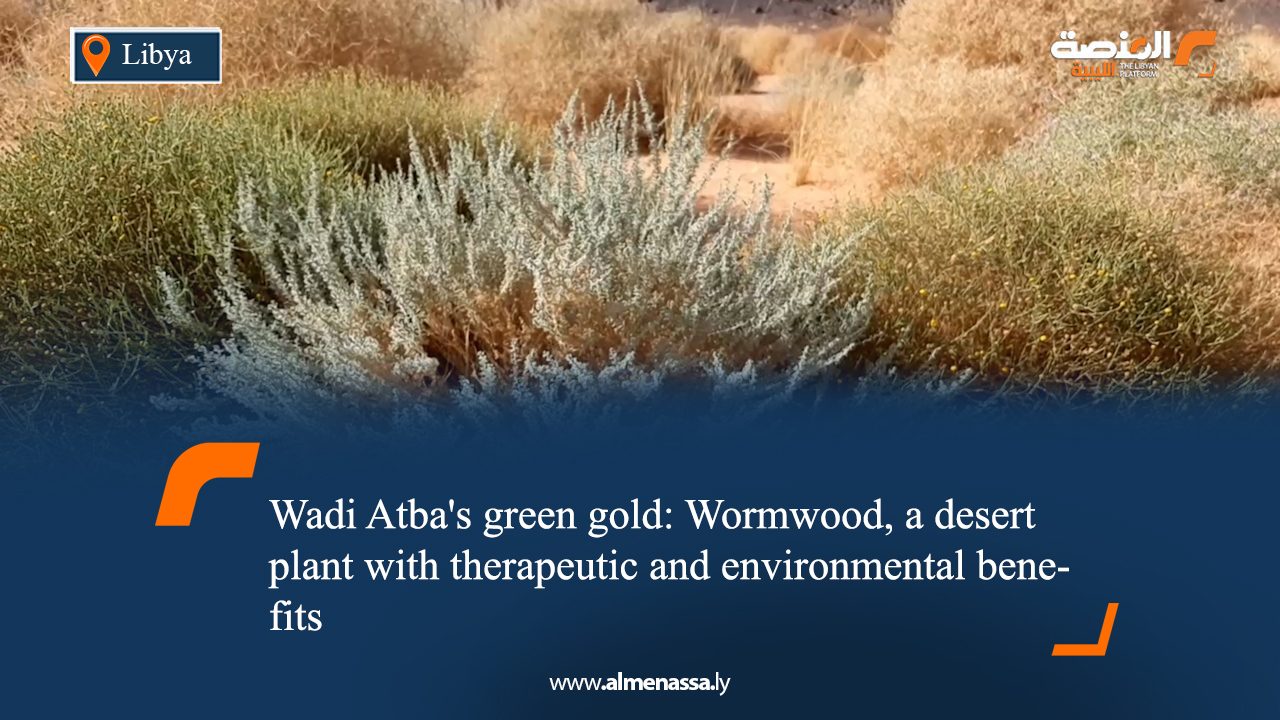The southern Libyan desert, particularly the “Amsak” valleys within the administrative boundaries of Wadi Atba municipality, adorns itself with the verdant hues of wild wormwood, a perennial plant distinguished by its exceptional ability to thrive in this arid environment.


Wormwood is renowned for its remarkable capacity to adapt to the harsh, dry conditions of the desert, boasting a lifespan that extends over many years. Its lush growth is particularly noticeable along the watercourses of valleys and on sandy soils.
For generations, wormwood has been an invaluable resource, especially for the Tuareg people, who have inherited extensive knowledge of its use as an effective traditional remedy for a wide spectrum of ailments. These range from digestive issues such as indigestion, food poisoning, flatulence, intestinal worms, and colic, to even the common symptoms of influenza.


The benefits of wormwood are not confined to humans alone; they extend to the animal kingdom as well. Traditional veterinarians employ it in the treatment of certain livestock diseases. Furthermore, local inhabitants diligently use it as a natural incense with antiseptic properties, aiming to purify and disinfect homes, eliminating harmful germs and microbes.
The wormwood plant truly embodies a precious botanical treasure within the heart of the desert environment, owing to its multifaceted therapeutic and ecological advantages. It also encapsulates the rich health and knowledge heritage passed down through the generations among the people of this region.






